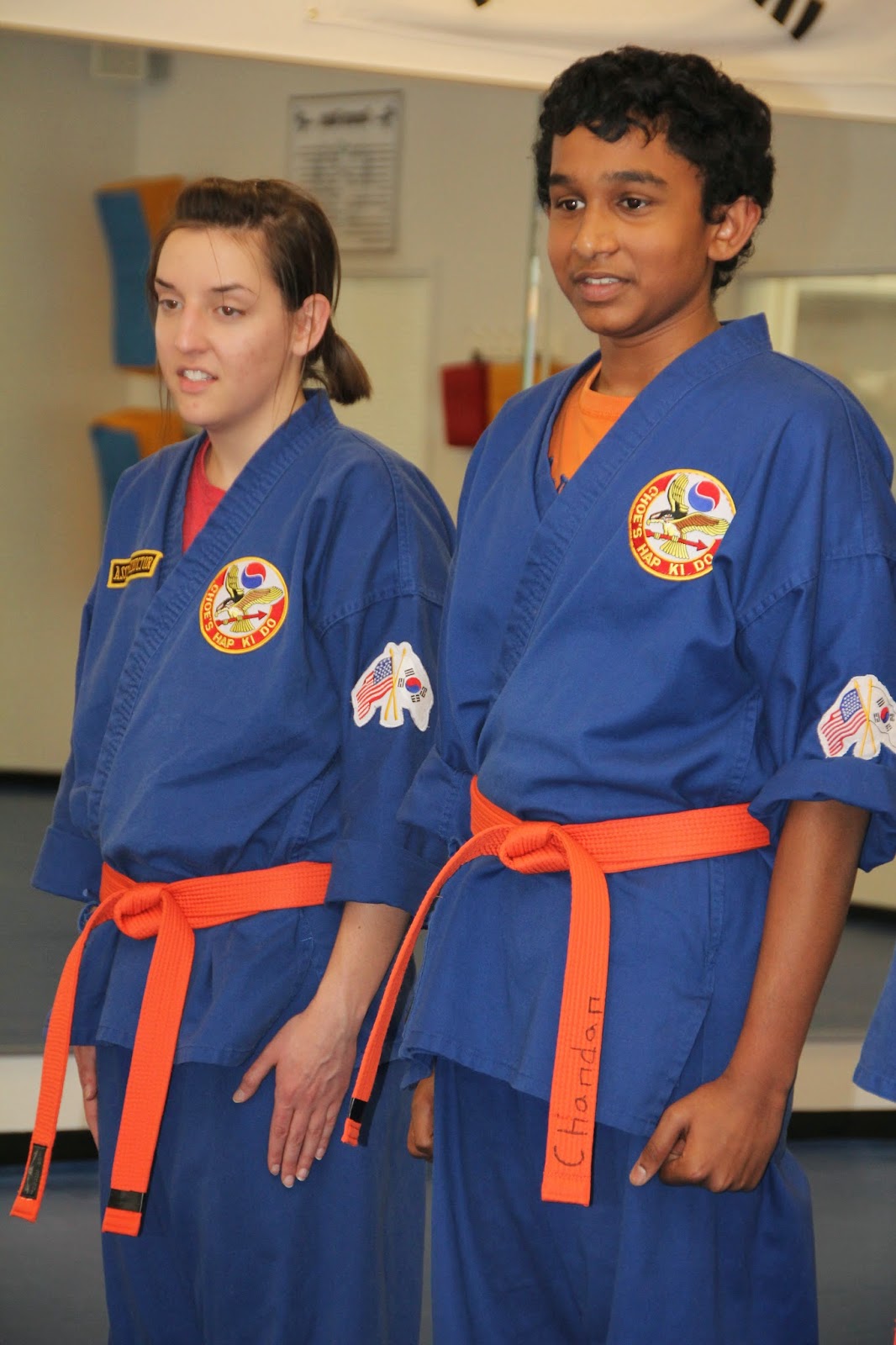Benefits of loud
responses in Martial Arts Classes
If
you have participated in HapKiDo for any amount of time, surely you have heard
the admonition from your instructor. “You are too quiet!” It’s your
instructor’s way of encouraging you to respond to their direction not just
with, “Yes, Sir,” but with a loud,
“Yes, Sir!” You may be wondering, “What’s the big deal? That guy at the other
end of the line is loud enough for all of us!!” But maybe the request for a
loud response has some purpose behind it.
The first
purpose is one that goes without too much saying. Martial arts is a whole
system based on respect, mutual respect between teacher and student. It’s also
based on trust; trust must be a part of the relationship between teacher and
student (see Ten Expanded Ideals of the Hwarang, #7). So the very first reason
to respond loudly is because your instructor asked you to. Could there be more
to it than that?
The benefits for
the student go way beyond merely strengthening the relationship between teacher
and student. Though the pursuit of HapKiDo may seem highly individualistic,
every class you attend puts you on the mat with others who are also striving to
achieve a goal through training. These individual goals probably share quite a
bit in common, say, perhaps, the improvement of one’s quality of health and
life through martial arts. That common goal takes individuals in a class and
incorporates them into a team. As part of a team, your individual contribution
counts. The total amount of team energy depends on your input.
So, why does it
matter in HapKiDo whether or not the team or its individuals is loud? Energy!
When you think of a relaxing atmosphere where not much needs to be
accomplished, you may picture a quiet scene. But then, think of a sporting
event where the score is close and the game is almost over. What does the crowd
do to encourage their team to finish strong and victorious? They go wild and
yell and scream to urge them on. High energy on the HapKiDo mat contributes to
kicking higher, punching harder, and sharper, less lazy, more accurate practice
of self-defense.
The name HapKiDo
means the art of coordinated powers, one of the very first things learned when
beginning HapKiDo. What powers or strengths are we coordinating? We are
coordinating our inner strength with our outer strength. Our inner strength, ki
power, inner energy can be stirred with a strong, out-loud yell. Then that more
vibrant inner energy is demonstrated in the way we move in class, or at test
time.
This ability to coordinate our inner strength with our outward actions is especially import as adult who face struggles in the world of our careers, relationships, etc. When we are faced with a difficult situation as an adult, do we have the confidence and internal strength to persevere through the tough time? When you are loud in Martial Arts Class, you are practicing taking the power you have within you and bringing it to the surface. Even if you are very strong internally, if you do not practice bringing that power out in your actions, when the time comes that you need to utilize your inner strength you may not have the ability to use it.
The higher belts
in our HapKiDo family have a responsibility to set the example. You can
envision the HapKiDo journey as traveling down a stream of water. The farther
downstream you move, the more there is behind you. The upstream water is
depending on you to set the course. In setting the example of loud, respectful
responses to the instructor, the higher belts demonstrate the expectation, and
also reap the benefits of becoming not just a mediocre martial artist, but one
who excels.
Susie R.
Martial Arts Instructor
Choe's HapKiDo Karate of Cumming and Suwanee
3020 Old Atlanta Rd.
Suite 300
Cumming, GA 30041
(678)513-5436
http://www.iLoveMartialArtsGeorgia.com
https://www.facebook.com/choeshapkidocumming
http://www.CummingSuwaneeMartialArts.com


No comments:
Post a Comment